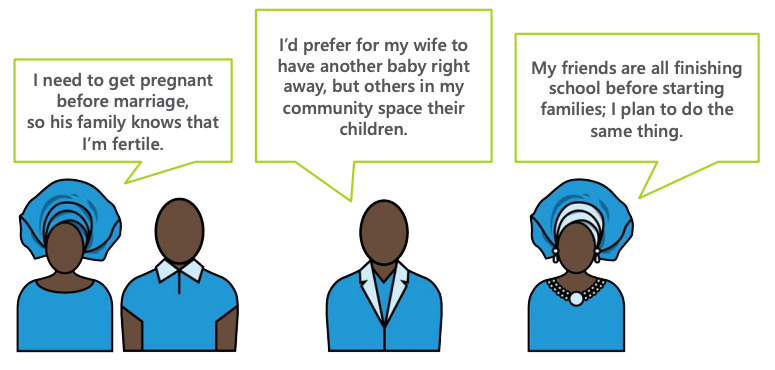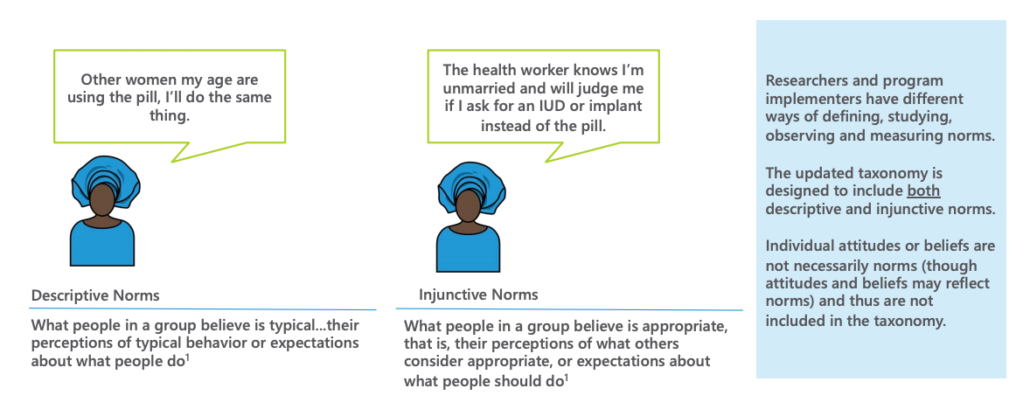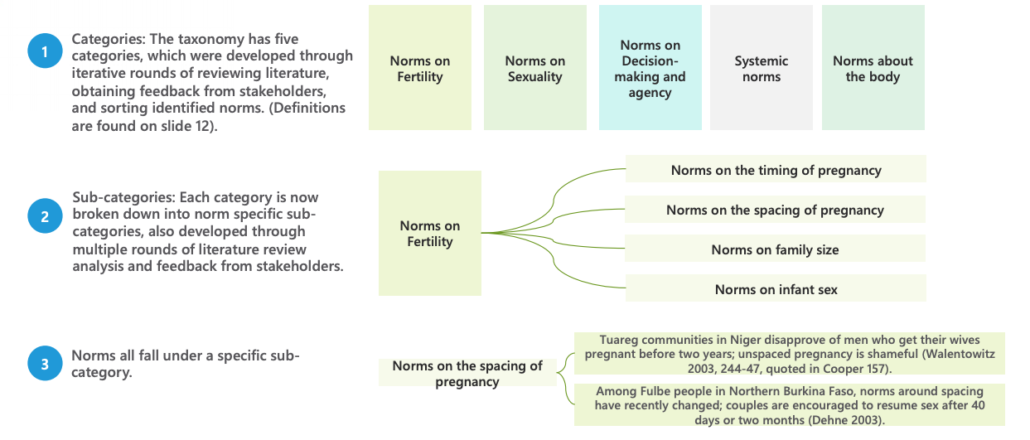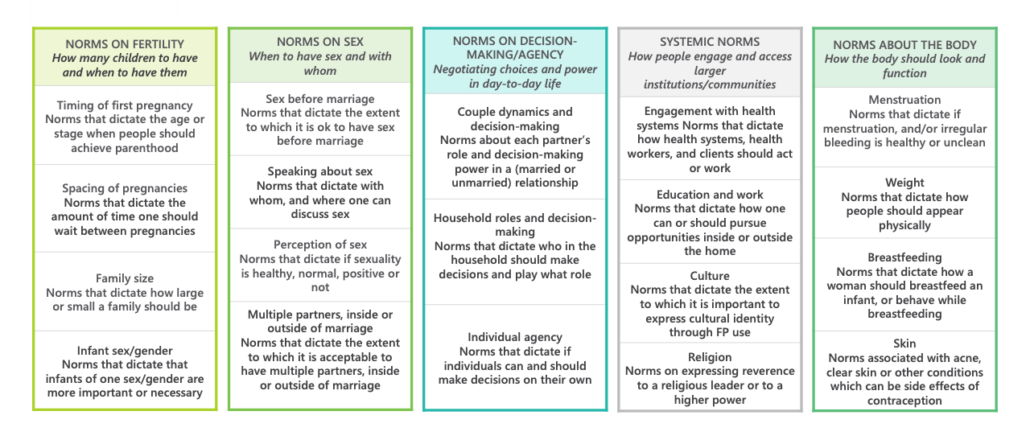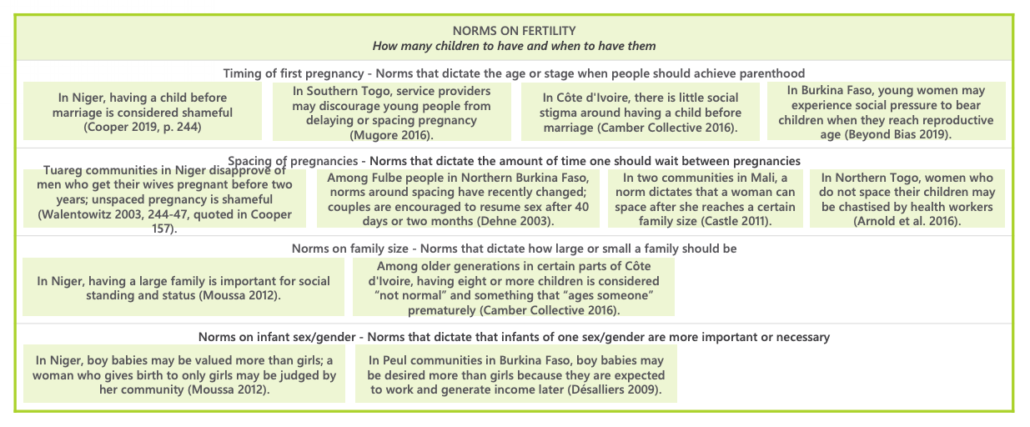Written by: Jessica Vandermark, Senior Marketing Advisor, and Sarah Burgess, Breakthrough ACTION
Social norms are unwritten rules about how to behave. Family planning is a very personal and sensitive topic in most contexts, yet individual’s decisions regarding family planning are largely influenced by their perception of social norms, in addition to broader systemic factors.
Let’s consider the following examples of how social norms may be at play in influencing decisions around family planning in West Africa:
Identifying the social norms that govern behavior within a certain context can be helpful in understanding the various social influences and value systems that underpin individual choice.
Breakthrough ACTION, funded by the United States Agency for International Development (USAID) and led by John Hopkins Center for Communication Programs, developed a taxonomy of family planning social norms in West Africa to better understand the norms that exist and how they may or may not influence individual’s behavior related to family planning.
The taxonomy looks specifically at two different types of social norms, as described by Cialdini, R. B., et al. (2005).
The taxonomy has three levels:
Below is a summary of the categories and sub-categories explored in the taxonomy:
Each category includes a table with additional detail, such as this one, looking specifically at norms related to fertility:
So, why is this important, and what is the intended use of the taxonomy?
The taxonomy can be used:
- In formative research, to develop questions or probes around social norms which may exist in a community and influence family planning
- For gender analysis and segmentation, to analyze how norms are different for men and for women, various ages/life stages, or for particular segments
- In reflective discussion with family planning and social and behavior change practitioners, particularly on which norms impact key family planning service provision behaviors
We do need to recognize that this type of analysis has some shortcomings. Namely that the taxonomy is not:
- A comprehensive list of all norms. Many have not been documented in academic literature, and norms are constantly changing or nuanced according to context
- A stand-alone research or program development tool; the taxonomy is designed to complement and build on existing tools
- A list of everything that must be addressed in order to influence family planning behavior; different norms will be important in different contexts
We hope this analysis is beneficial to those working in the field of family planning in West Africa, and we welcome your feedback. The full report on the taxonomy is available in English and French.
Social norms support the fabric of society and serve as guideposts for which behaviors are considered acceptable or unacceptable. Understanding the social norms that exist in a given community of culture is crucial for learning how to serve this community, particularly in the area of public health.
See the taxonomy for a list of resources.

